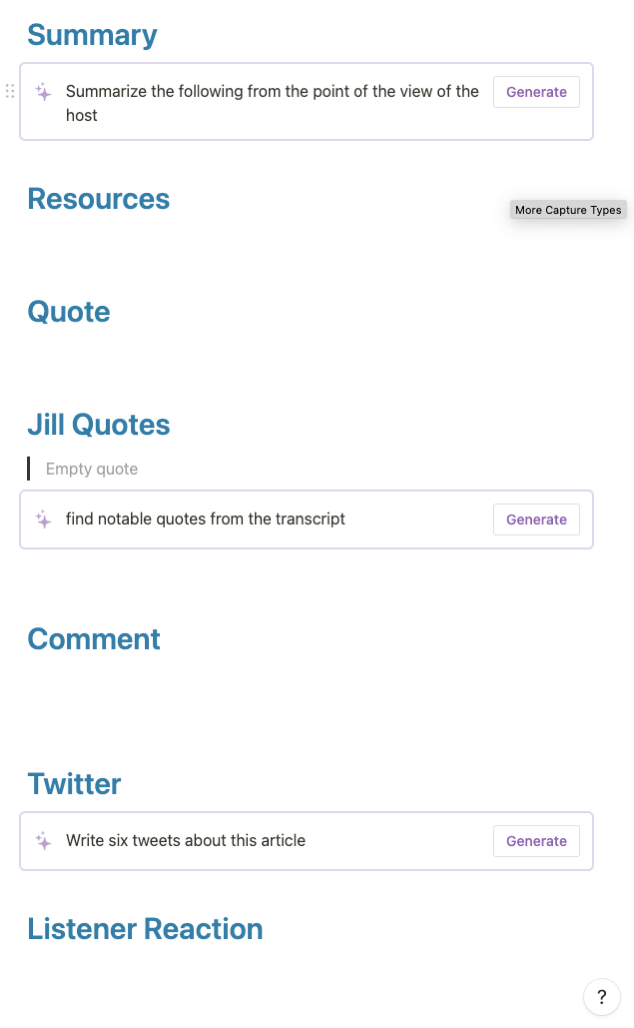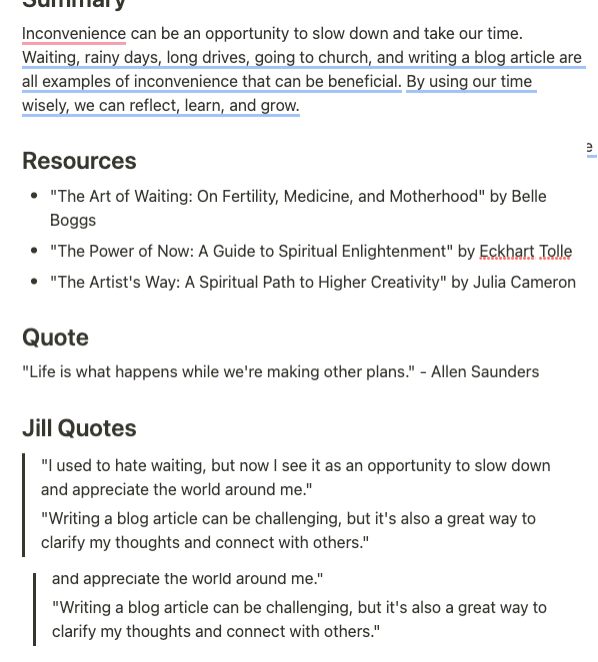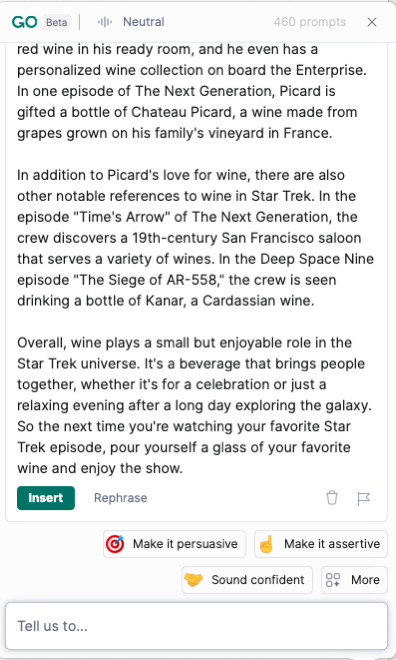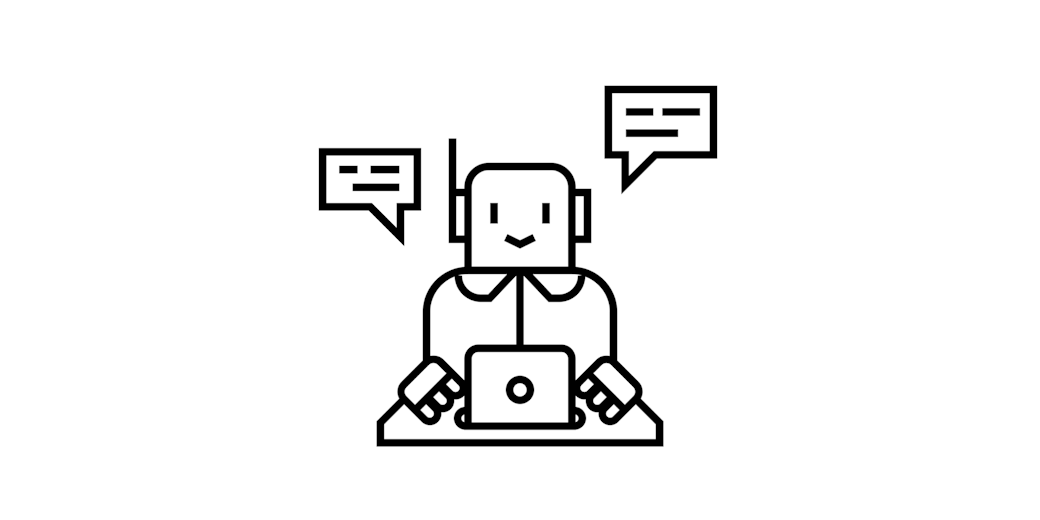Hello, this is Jill from the Northwoods. I realized a while ago I really dislike writing. And, well, maybe dislike is a harsh term, but I’m certainly not good at it. I can get things done.
Obviously, the work world needs me to be a good writer. I took a few classes through the university extension, which helped quite a bit. But still, it takes a long time for me to write, and I don’t enjoy the process at all. Certainly, I am more of a talker, or at least all my teachers told me so.
When I started to hear about AI and how it helps people do various tasks. I was interested in it. But I’m also not really interested in it writing things for me. I see many people say that it writes their papers for them. It writes their podcasts for them. It writes blog articles for them. Not interested in that.
I want my creative content to be mine. Also, podcast listeners don’t want to listen to AI-composed podcasts. It’s dull. It has no personality to it. That is why people turn to podcasts in the first place.
Tinkering with AI
I did want to learn the technology. I believe in keeping up with technology. And so, I started with a few minor tasks. I had it write some biographies of Star Trek captains like Janeway. I didn’t know where she came from, so I had a [ChatGPT] (https://openai.com) find out for me and write a little biography. That was cool. I also asked it to do some listings, like who are the leaders in Star Wars. It could come up with a few people I hadn’t considered for an episode I was doing.
A few months ago, I had to pare down an important document. It had too much text, and I needed it to be one, maybe one and a half pages. I struggled to consolidate my thoughts about it and asked ChatGPT to shorten this document.
I had to rewrite parts of it, and some of it was not quite exactly what I wanted, but it could take that analytical look at this document and see where there was overlap. It did a great job. It would have taken me hours and hours of just diving into this document, hoping that I could figure something out, but instead, it saw through it all.
Can AI be Funny?
Then came the time for the biography I needed for MacStock. I am going to be speaking there this year, and I have a biography, but it’s for when I do corporate presentations at work conferences. It is boring. So I thought, here’s an interesting task. I asked ChatGPT to rewrite it but make it funny. You know what? It did such a great job. I ran it through twice and took the best parts out of both renditions. The full transcript is on the MacStock Speakers Page.
Here’s an excerpt:
Jill’s not all work and no play. Oh no, she’s got a whole other side to her. She’s got not one, not two, but three podcasts. Start with Small Steps, and Small Steps with God are already up and running. And she’s got a third one in the works about seeing nature in the world around you. She’s like the Oprah of the podcast world, except instead of giving away cars, she’s giving away tips for a better life.
The whole piece was funny. It made me laugh. It made Allison laugh. It made my friends laugh and now it’s my favorite bio. I’m going to use it every place I can. So that was a lot of fun.
I even tried to use AI to text my best friend. She knows I can’t write very well, and when I do, I tend to be very short. Here’s what I sent her:
I hope this email finds you well. I wanted to follow up with you regarding our plans to go to Trader Joe’s. I apologize if I missed the time we had previously discussed, but I was wondering if you could let me know what time we will be heading over there. I am looking forward to our trip and am excited to see what goodies we will find at the store. Thank you in advance for getting back to me with the time.
So I waited a while, and she didn’t even answer me. She says, “I don’t talk to robots.” She knew it wasn’t me, but still, very good. But not for every use.
Podcast Shownotes
But then came the real problem I was trying to solve. I want to have a podcast empire, and in order to do that, I have to make everything I do more efficient.
When I started podcasting, I had full blog articles. Allison really impressed me with how important it is to have the transcripts and blog articles. People take information in different ways, and some people with disabilities can’t take in information in every way.
What can I do? I started with my podcast, writing the blog articles, and doing the whole article. But the problem with it is that it took me hours. It took me longer to write the blog articles than it was to do the podcast episode. I didn’t enjoy it. I also have a job. I need to streamline this process to get more done during my free time.
What if I could run my transcripts through AI and make the show notes for me? As I said, I started with full-blown articles about it, then I went to highlights and summaries, and then eventually, it went to one or two sentences that explained what the podcast was. I mean, it’s not very exciting, and I wasn’t doing a good job with it.
Selecting an AI
I started using the app for Mac, Whisper Transcription, to transcribe my older podcasts. It does such a great job.
But then, when it comes to the AI, which one am I going to use? There are a couple of different options out there. Funny how first there was ChatGPT, and suddenly it’s just exploding in AIs. I wanted to find something that was useful, valuable, and accurate. I started looking at the different products out there.
ChatGPT
Of course, ChatGPT was my first thought.
I ran a few summaries through it, and it did a great job. It summarized the podcast. It made interesting sentences, but then I noticed it was starting to make things up things that I never said in the podcast.
The one that I had the most trouble with was the one about the bickering leaders of Star Wars. It had content about the different leaders and how they didn’t like each other and fought each other. I even talked about some of the bad leaders, the evil leaders, inside Star Wars.
When I ran it through ChatGPT, it changed the whole nature of the podcast, turning it into roses, sunshine, and cooperation. That is not what I said at all. Did it not like the fact that this was a more negative topic? Not really negative, but it wasn’t in the most uplifting way possible. You can’t have a podcast transcription or show notes that are made up.
I even asked to pull out the top quotes from this article, and it also made those quotes up. Weird. I was listening to an author talking about how he put his book into ChatGPT and asked it to summarize it for him. It added characters, dialogue, and things that never happened in the book. So sometimes ChatGPT has a mind of its own.
Notion AI
Then I tried Notion AI inside the Notion App.
If you haven’t used Notion, it’s a whole other thing, but it is my database program. That sounds too technical for what it is. It is my notebook of everything. It has all my podcast ideas. It has all my podcast topics. I have a little database for each podcast. When the podcast was done? What was the date it was released? Which status is it in? Which book did I review? All my details together.
I also have a little light budget in there, and a note-taking notebook with everything I find interesting and want to look up later goes inside of Notion. Really fantastic.
But each of my podcast episodes now has a place for quotes from the podcast, transcripts, and social media that I’m planning on using. Notion came out with Notion AI and allowed paid users to test it and it was pretty solid. I was very impressed with it.
So then, when the beta ended, it asked people to pay $10 a month. I’m not big on services, but this was really helpful. I started paying for the services because I knew I wanted to do some form of AI for my podcast. The good thing about the Notion AI is that it can look at the internet. I could ask it to write a biography of Captain Janeway or Captain Kirk or list every episode about wine inside Star Trek. I could do all sorts of things with it.
But it’s also looking at my private internal notes. My transcripts that I’m getting from Whisper go into the notebook, and then I can ask it to do many different things with it. I can ask Notion AI to summarize. I could rewrite it to make it more concise. I’m not sure I would do that with a podcast, but notes would be fantastic.
If it finds to-dos or action items inside a meeting note, it will pull all the to-dos out so that you can see who got assigned what task to do. Having that internal look compared to things on the internet makes it a much more powerful tool.
You can even have it create databases. I watched a fellow do a video where he said to compare all the snowboards and the pluses and minuses of each snowboard in a chart. It created a Notion database of all the different brands of snowboards and all the pluses and minuses. Very helpful, and I haven’t used that aspect yet, but I could see where that would be great when you’re trying to compare things.
So then, my first step was to ask Notion to write a summary of my podcast, and it did a very accurate job. If I had a problem with it, it is that it took all 170 episodes of podcasts and wrote them in a very similar fashion. Using the same words, “Jill discusses” and “Jill emphasizes” are all the same practical words. It’s very steady. It makes for very solid show notes. It brought out all the most important points, but I had to break out the thesaurus and develop a few better words because sometimes it was boring. Fair enough, it did a great job.
Notion Has AI Button Presets
Because it did such a good job, I replaced the show notes of all of my podcasts using the Notion AI summaries. I even created a template for each podcast where I can put in the transcripts, and Notion AI lets you create buttons.
One button I created is to summarize the podcast. One button is to generate social media tweets. Another button was to come out with key points from this transcript. I noticed that not only would it do those tasks inside the button, but when there were fields inside my database notebook, it also tried to fill those fields out too.
That was amazing because if I said something about the resources I used, it tried its best to figure out what resource was being used. That was wild. So not only did it answer the questions I asked it to, but it also tried to answer more than that.

And then, I made a mistake when I was writing this article for recording, I accidentally clicked on the summary button on a blank topic. All it had was the topic name and then the generate summary button. There was nothing to generate.

Do you know what it did? It actually tried to write the podcast for me. I didn’t say any of that data it invented. Then it suggested three resources for me for this particular podcast. One was weird and unrelated to my topic, but the other seemed somewhat related. Then it pulled a quote for me that was about the topic.
If you don’t know my podcast, I always read a quote at the beginning. It found one for me. It even wrote fake reviews for the episode that hasn’t even been done yet. That was just wild. It will try to do whatever it can to make it useful to you. It’s going to cook my dinner soon too.
GrammerlyGo

But then I started noticing this interesting thing inside Word documents and Notion itself. I saw the Grammarly icon that was there. You get a little writing pencil that shows there could be edits. You could write things a little bit better. There’s a grammar mistake here or there.
Then it had a green light bulb next to it. What’s this green light bulb? I clicked on the green light bulb, and sure enough, it was something called [Grammarly Go] (https://www.grammarly.com/grammarlygo), an AI from Grammarly.
If you don’t know, Grammarly does a fantastic job of fixing grammar. You can use it with different software, mail applications, Word, Notion, LinkedIn, and web pages. There’s a plugin that goes into Safari and other browsers. Still, you can tell it when it’s correcting your grammar that I need to sound a little bit more formal, or this document is meant to be friendly, and it rates your tone, so you’re coming in exactly where you want to be when it comes to tone, or the kind of voice you want to use when it’s correcting your documents.
But here’s what GrammarlyGo will do, which is a part of the Grammarly desktop application. It will also now generate text, just like all the other AIs.
But you can also tell it to shorten, lengthen, improve, adjust the tone, make it more direct, and make it more confident. It will also write the document for you and fix it. But instead of having to use some magic code, hoping that the AI understands what you want, it has nice buttons that let you type something in, like list all the Star Trek captains. Boom. List them all.
Now list all the Star Trek captains and add a short biography. Write that too. And then you can adjust the tone, do whatever you want with it. If you have a free account, you can ask it for a hundred prompts or have it write a hundred things for you.
The premium account costs $12 a month and will write 500 prompts for you. And there’s also a business level for organizations. That’s kind of nice. And you don’t have to know the secret code to get the right document type. It’s in this nice menu system. I looked on their website, and they consider it to be in a beta phase.
Testing ChatGPT
I decided to test how each of these pieces of software could write and summarize a podcast episode for me so I could put it in my show notes. I started with ChatGPT and it wrote:
On today’s episode of Small Steps to Authenticity, we dive into an insightful article titled, ‘Bring the Real You on Dates.’ The article emphasizes the importance of embracing authenticity during the dating process.
Okay, that’s fair enough.
Testing Notion AI
When I asked Notion to look at the same document, it said:
This is a summary of episode 140 of the Start with Small Steps podcast.
Oh good, I got my podcast right.
In this episode, the hosts discuss how to bring your authentic self to dates and relationships.
Okay, well, that’s informative. Every time I use Notion, it’s very informational but tends to use the same word. I discuss. I give advice. I emphasize. It seems always to use those same words, which makes it kind of boring if you’re doing 170 of these.
Testing GrammaryGo
But here was Grammarly:
Today’s discussion revolves around the book The Selfish Romantic, How to Date Without Feeling Bad About Yourself, by Michelle Elman. The book talks about building relationships together instead of just doing something for the other person. The author highlights some myths about dating, such as the idea that all the good ones are taken, or opposites attract.
See, that was better, and I thought it was more engaging, interesting, and useful for a podcast. So now I’m a little sad that I finished doing this for all of my podcasts and might start going back and redoing some of these to use Grammarly. I think it came out with a better paragraph.
Can They All Be Funny?
But then I decided, what if I wanted to be funny? Are any of these AIs funnier than the others? So I ordered them to do a summary of this document, one paragraph, but make it funny.
This was ChatGPT:
Hey there, hopeless romantics. If you’re tired of pretending to be someone you’re not on dates, this hilarious article, Bring the Real You on Dates, has your back. True love might be just one ridiculous cat sweater away.
That was kind of funny. I like that one.

Notion said:
Are you tired of going on dates and pretending to be someone you’re not? Finally, a resource that encourages you to embrace your inner weirdo and let your freak flag fly.
Okay, I don’t think I said that, but good Notion, you tried really hard to be funny there.
But this was Grammarly:
So you want to bring the real you on dates? You should embrace vulnerability, honor your values, and be honest.
Then it goes on towards the end.
So go forth and be genuine, my friend. And if all else fails, bring a puppy. Everybody loves puppies.
I didn’t say a word about puppies, but that’s pretty funny. So again, I think Grammarly did the most interesting job of all three of them.
Overall, now that I’ve run this test, ChatGPT is the most interesting one, but it just makes up too much stuff. It adds things that didn’t exist. It discusses things that were never parts of the podcast or the original document.
Notion is boring but factual. It did a very effective job of writing, and I didn’t have to upload my documents again to the internet because it was all inside my little notebooks that I have.
But when it comes down to my favorite, Grammarly is the best. Not only that, it was pretty funny. It shortened my podcast topics, and it had all those nice buttons that if I needed to make it more formal, informative, or funny, it was all right there for me to do much more easily.
Advice for Using AI
My biggest advice when using chat AI is to learn the software, you know, pick something, ChatGPT or Notion AI or GrammarlyGO or something else, and learn it well.
They call what you tell these AI machines, prompts. I first started out by putting the transcript from the Whisper software into my Notion database. And then I said, “Summarize it.” And again, they did a nice, efficient job.
But then I started playing with it a little bit more. I said, “Put in paragraphs” because it comes in one big paragraph when you get it out of Whisper. Maybe it would save me a little bit of effort by putting the paragraphs in.
You know what? It did. And then I said, put in paragraphs and rewrite the document to correct for grammar, because grammar is not my forte, even if I’m speaking. I still flub up occasionally, and it did that nicely too.
Learn the AI software well and how to create prompts. Our next big career will be people who understand prompts better than anybody else. I have seen almost 200-word prompts going into various AI products to get exact results. But learning that software will help you get what you’re trying to find inside the AI.
There you go. I think that using AI is not to create content. Podcasts and blog articles that do that will just be dull. We want to hear the human inside of what we read and listen to. But using it to save time or get a different aspect or point of view than we’re used to reading has been more valuable than anything.
I hope you enjoyed this, and I hope it helps you start thinking about using AI to help make jobs that you’re not excited to do a little bit easier. I know many people are worried and stressed about AI, and there are things to worry about. But learning how to use it and learning how to be effective at it and taking away some of these tasks that you don’t want to do will make all of us better in the future and allow us to spend our time doing the parts of our job we really love doing.
Again, this is Jill from the Northwoods. If you have anything to say about this particular clip, you’ll find the blog article on Allison’s website, or you can email me at [email protected]. Let me know what you think or if you’ve tried other things. I’m always interested in what people are doing with AI and how they find creative ways to improve their lives.

